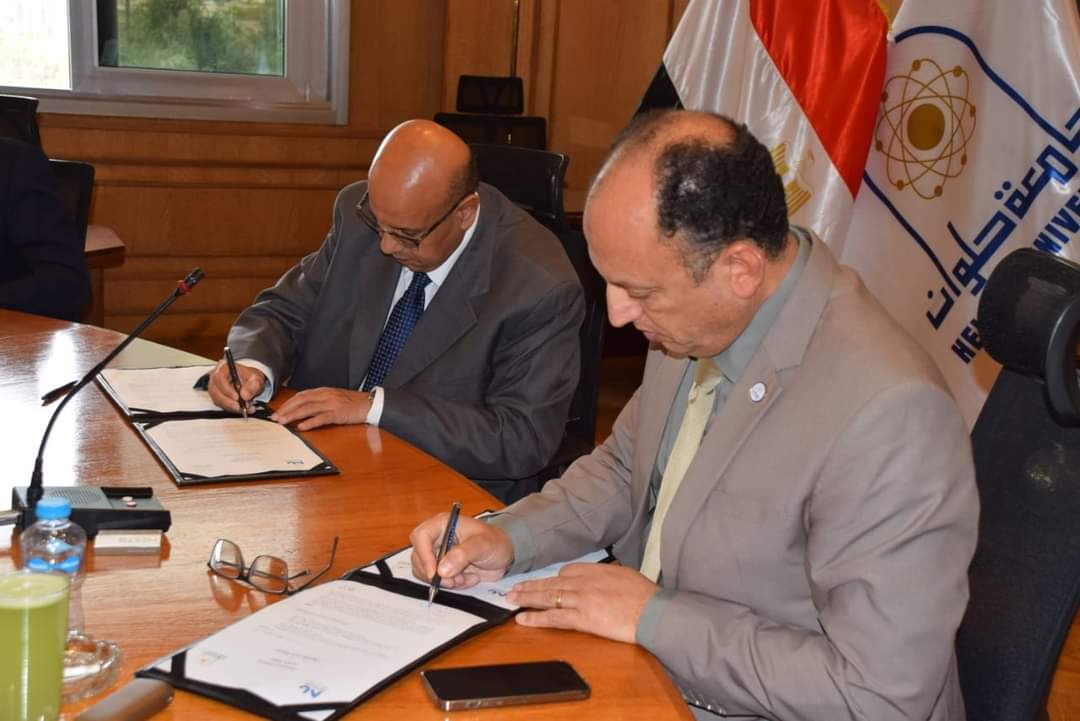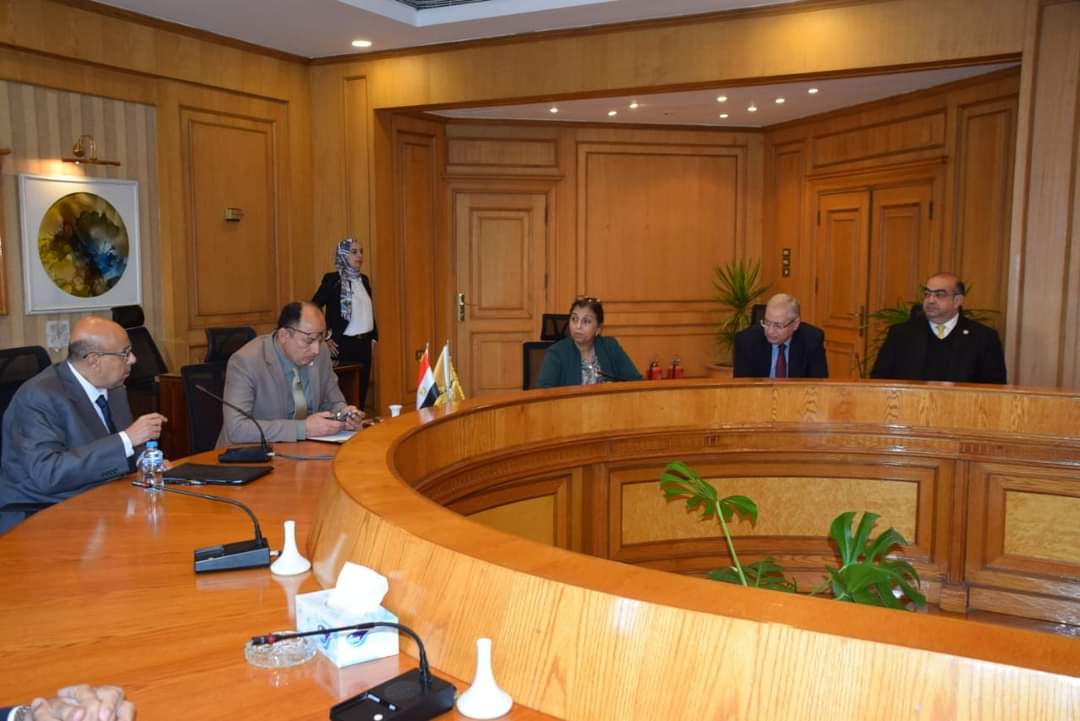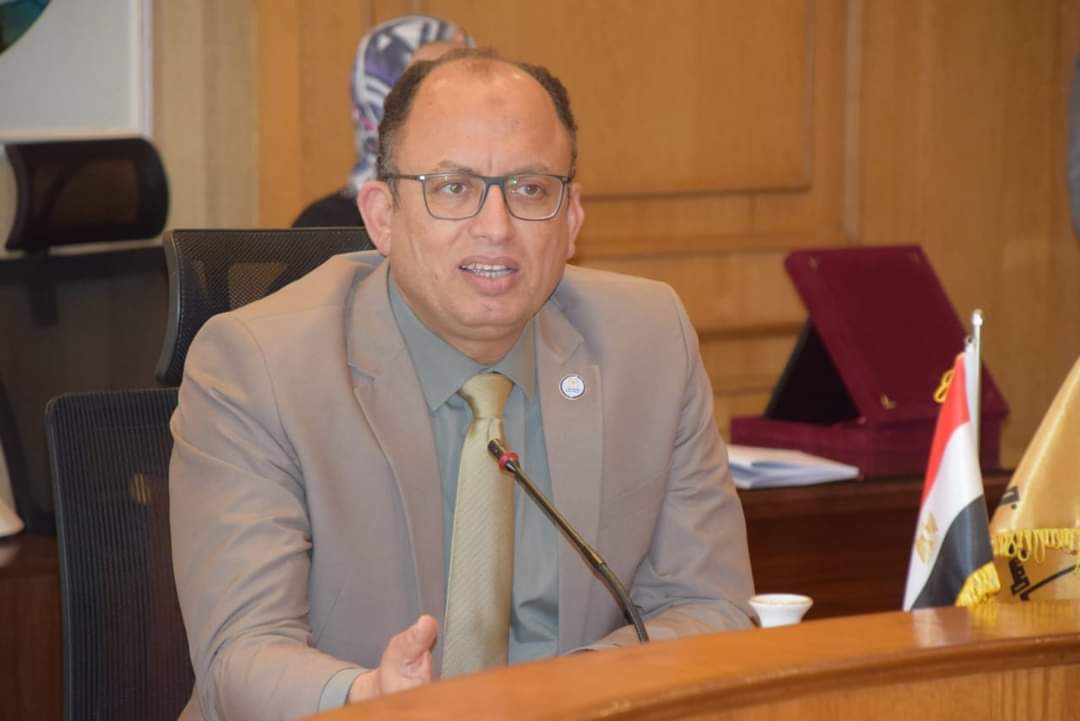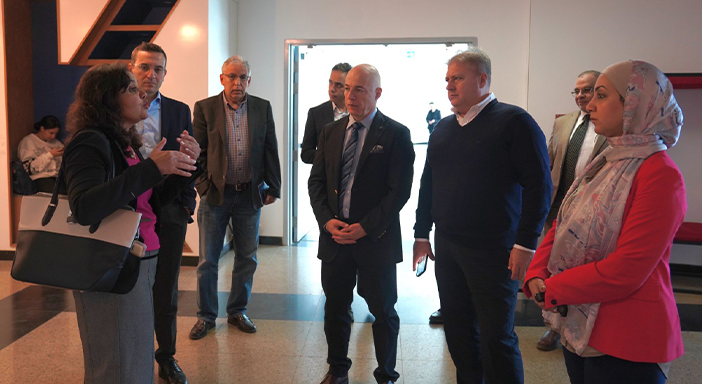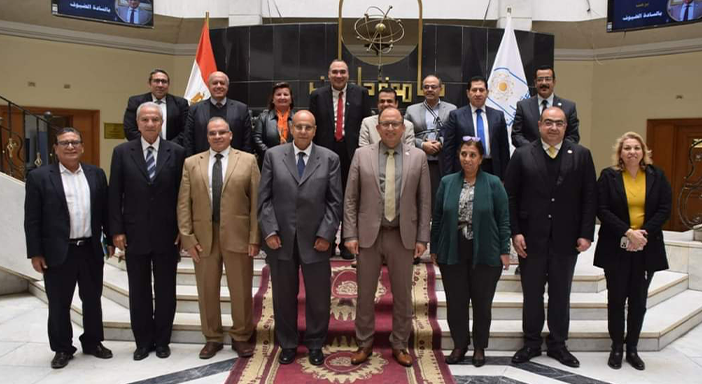
NU Partnership with Helwan University
On the 6th of December, Dr. Wael Akl, Nile University’s President and NU’s delegation were received by Dr. El-Sayed Kandil, President of Helwan University, in order to hold cooperation between the two universities with the aim of developing academic and research cooperation, enhancing mutual understanding between the two parties, supporting comprehensive cooperation in academic and research fields of common interest, and exchanging staff members, experts and specialists in various fields regarding academic programs, research and theses, educational development projects, and joint research projects.
Dr. El-Sayed Kandil explained that this protocol comes within the framework of the mission of the two universities to provide higher education and high-level scientific research for everyone and a desire to increase joint cooperation between universities to create opportunities for cooperation between the faculties and existing research centers affiliated to each of them, in addition to the schools and research centers that are being established in accordance with the strategic plan for each university.
This includes cooperation to create study programs that can be offered at both universities and to apply for joint scientific and research projects funded by local and international bodies. This also includes the exchange of students for one semester or more between the corresponding colleges and the availability of specialized scientific laboratories in one of the two universities for employees of the other university.
The collaboration also covers the joint supervision of the thesis for postgraduate students. Moreover, postgraduate students from one of the two universities can attend some of the courses available through video conferencing devices to broadcast postgraduate lectures. One of the parties can also, through coordination with the other party, use one of its headquarters in some national initiatives and for a fee agreed upon by both parties. Cooperation also includes the possibility of nominating peer reviewers for quality between the two universities to review the application of quality standards for academic programs and self-study for programs and colleges. There will be the ability to exchange knowledge with regard to laboratory and study equipment in the corresponding faculties, so that this cooperation becomes a pioneering educational and research model.
Such an intense agreement between the two universities is set to witness great achievements and boost personal, career and skill development with its various methodologies.

